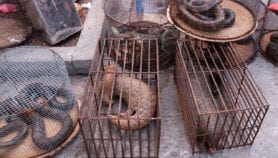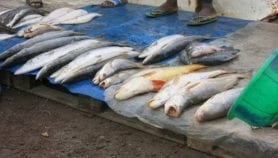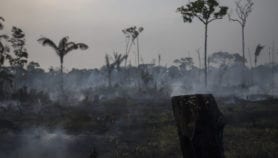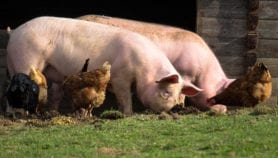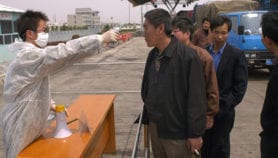By: Joel D. Adriano
Send to a friend
The details you provide on this page will not be used to send unsolicited email, and will not be sold to a 3rd party. See privacy policy.
With disputes about the quality of exports on the rise, developing countries need to boost scientific capacity to win claims, says Joel D. Adriano.
In today's highly competitive global economy, science has a crucial role to play in commerce. Traditionally it has driven the technologies used in the industrial production of everything from mobile phones to pharmaceuticals. More recently, it has been used in product standards, particularly in testing for compliance, which can have a big impact on trade.
For example, countries importing live animals must meet standards on factors such as weight and size; for crops such as rice, exporters must conform to criteria such as moisture content, size and weight.
But now, science is also playing a big part in a rising number of trade disputes. With a surge in disputes filed in 2012, with 26 filed so far, the World Trade Organization (WTO) is expecting the flood to continue in the coming year. [1, 2]
This could pose problems for the developing world, which is hampered by a lack of research and well-equipped laboratories that would help them meet export standards.
On the losing side
A lack of capacity means that developing countries usually end up on the losing side when trade disputes arise.
When countries apply non-tariff barriers to block imported goods, poor exporting countries often do not have the scientific means to adequately dispute or refute the claims made for a restriction. Non-tariff barriers are imposed by importing countries to restrict the entry of certain goods into their markets, to protect consumers and the environment, among other objectives.
Less well-off countries often have little choice but to accept the standards and conditions — even if they see them as unfair — as some are nearly impossible for them to contest, and their trade negotiators may not be prepared to deal with the science behind the negotiating points.
Some of the more common non-tariff barriers imposed are sanitary and phytosanitary (SPS) conditions, intellectual property laws, product standards, and packaging and labelling conditions.
SPS conditions, in particular, are a key element of trade standards. These are measures that protect humans, animals and plants from pests, diseases and other contaminants. When an SPS condition is used to put up a trade barrier, only scientific analysis is allowed to be used by the exporter to show that its procedures and testing methods do comply with internationally accepted standards, and so could be the basis for a complaint about protectionism.
The result: trade disputes have now become a battleground for scientific experts.
Catfish fight
One of the most cited trade disputes where science is playing a major role is the 'catfish fight' between Vietnam and the United States, which has been ongoing since 2002.
Unable to compete with inexpensive Vietnamese catfish that had already captured a fifth of the US market, the organisation Catfish Farmers of America opted for a more technical description of what a catfish is, claiming that only American species are genuine catfish. It asked regulators to ban Vietnam from using the name and the US Congress duly complied, a decision that means restaurants and supermarkets are prohibited from labelling fish from Vietnam as catfish.
Vietnam lost its case because it failed to establish scientifically that its species are catfish. [3, 4]
The Philippines is another country that has had its fair share of scientific trade issues. For example, it has been unable to establish the levels of aflatoxin — a carcinogenic mycotoxin produced by moulds — in coconut and coconut products to enable it to export larger amounts to Europe. Aflatoxins can contaminate a huge range of food items, from corn to cow's milk.
While the Philippines feels the European Union's standards are unnecessarily stringent (only 0.02 parts per billion compared with 20 parts per billion in the United States and 30 parts per billion in India) it does not have the scientific capability to demonstrate that a higher level is safe, as its capability is limited to measuring aflatoxin content.
See also India's dispute with Japan over shrimp. [5]
When developing countries import goods, they also face the challenge of detecting suspect products such as fake medicines.
Countries should cooperate
To strengthen their trade position, both for exporting and importing, it is necessary for developing countries to build up their research and laboratory capacities.
It is crucial to establish stronger collaboration in the scientific community. Often, research is organised vertically, with biologists working in one department, and chemists and engineers in others. They work in isolation and are far removed from industry and the private sector. As a result, in many cases, developing countries have no appropriate scientific expertise to bring to trade discussions and delegations.
As part of the problem is funding, countries could act in a bloc like the Association of Southeast Asian Nations (ASEAN) to improve regional capacities for trade and trade disputes and respond effectively as a group. It is not practical to establish institutions with scientific expertise in every country, especially in island states in the Pacific. A coordinated regional science approach is more achievable.
Joel D. Adriano
South-East Asia & Pacific regional coordinator, SciDev.Net
This article has been produced by SciDev.Net's South-East Asia & Pacific desk.
References
[1] Millstone, E. et al. Science in trade disputes related to potential risks: comparative case studies. (European Commission Joint Research Centre, Institute for Prospective Technological Studies, 2004)
[2] Miles, T. WTO sees more trade disputes ahead after vintage year. (Reuters, 14 December 2012)
[3] Connelly, J. US risking trade war with Vietnam over catfish. (Centre for Strategic and International Studies, Asia policy blog, 13 June 2011)
[4] Dinan, S. Vietnam threatens trade war over US catfish laws. (Washington Times, 1 August 2012)
[5] Sen, A. Shrimp export: India protests unscientific, unjustified standards. (The Economic Times, 4 December 2012)







